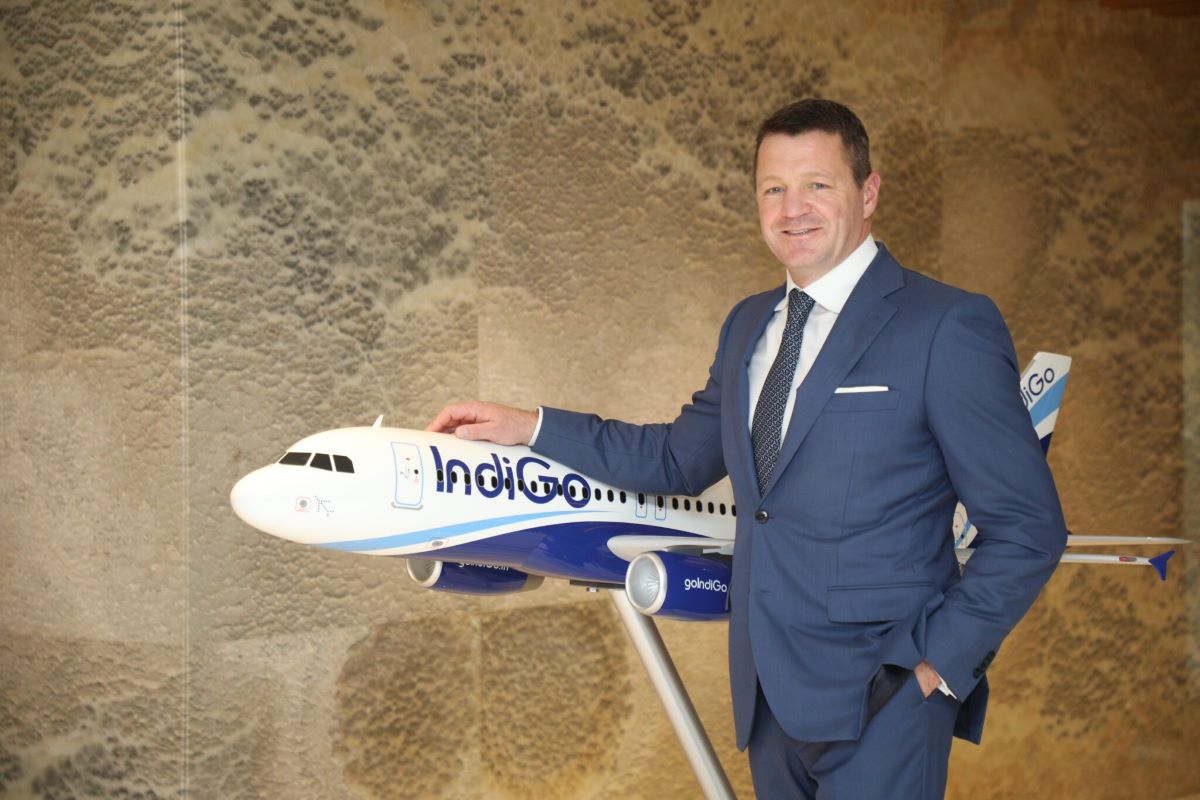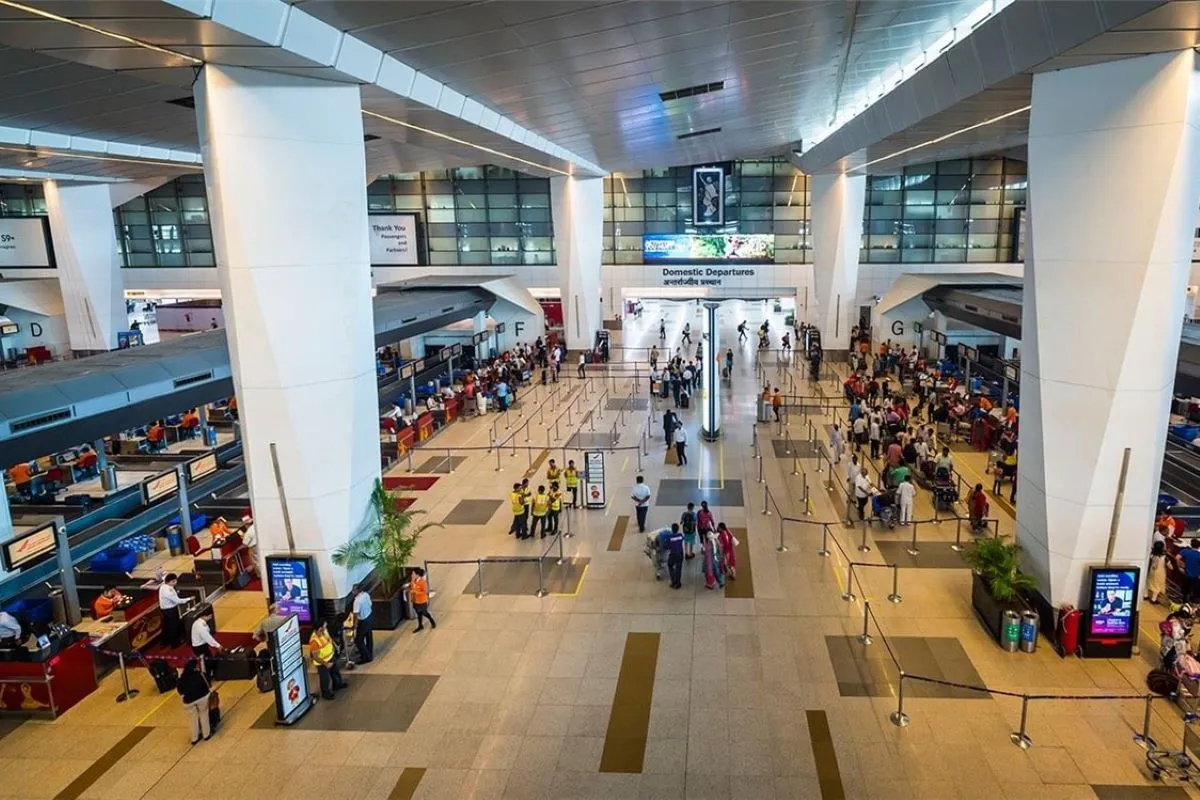How Travel Companies Are Meeting the Needs of the Emerging Super Commuter
Skift Take
Accor is considering expanding a package that targets long-distance commuters within the UK to Europe and beyond, as growing numbers of employees face longer journeys to their offices than before the pandemic.
The hotel group launched Commute and Stay packages in the UK in late summer, after the government relaxed guidelines encouraging employees to work remotely. It’s now tracking the data, one senior executive has told Skift.
Accor argues the package, which blends a 15 percent discount with a flexible cancellation policy, is ideal for workers who moved out of cities during the pandemic. Many people took advantage of lower house prices or rents in search of bigger properties and a better work-life balance, as they worked remotely.
It was a common phenomenon in London in particular. “We’re much more polarized as a city than a lot of other capital cities,” said James Wheatcroft, Accor's senior vice president marketing, northern Europe. “Due to house prices in London, the trend was accentuated there.”
The problem is, the commute just got longer. To address that, Accor predicts growing numbers of “flexi workers” will now spend two days, not one, near their office, and so will need an overnight hotel stay to make the most of their time.
“Team interaction is a big thing,” said Wheatcroft. “Zoom is great, but when you’ve got new teams, after all the transformation that organziations have been through, you can’t beat meeting in the office and popping out for beers after work."
There are potential cost savings as well, with the price of rail travel often exceeding hotel rates. “It’s a trade off financially, but also for time,” Wheatcroft added, who describes these workers as super commuters: "We see that trend staying, as a main driver of customer choice."
Further Afield
Situated close to London City Airport, a newly opened Marriott hotel also hopes to welcome long-distance commuters with more flexible options. The hotel is the first to open in the Docklands area, near the city's financial district, since 2014 and becomes the area’s first full-service property.
“There’s no doubt that the business travel landscape has evolved since we first hoped to open our hotel a year ago,” said Chris Thomas, general manager at the Courtyard London City Airport.
The hotel plans to offer Marriott’s “Day Pass” program in early 2022, which also encourages guests to work from the property. It offers 6am check-in and 6pm check-out times.
The airport will offer flights to 21 destinations across the UK and Europe this winter, including recently resumed routes to Amsterdam, Berlin, Edinburgh, Frankfurt, Glasgow, Prague, Rotterdam, Salzburg and Zurich.
American Airlines, meanwhile, is adding more flexibility in 2022 to some of its high-frequency business routes, with a new Main Select fare. The ticket offers refundable fares and free same-day flight changes.
Flexibility will be a key battleground for the travel industry over the coming years for those firms looking to gain more share in the lucrative corporate market.
“We’re always tracking the return. We cover 30 countries, and the trend around longer commuting and the need for this was driven out of London,” said Accor’s Wheatcroft. “We’ve a mix of clients of small companies and large corporates. You reassess the amount of time that was wasted on travel.”
However, with worrying news of a fourth wave of coronavirus now spreading through Europe, Accor's focus may soon be switching back to hotels that can be used as local offices, rather than as bases for so-called super commuters.
Sidenotes
Mixed messages from this week’s Skift Aviation Forum. Airline leaders were out in force at the event, and corporate travel was understandably a hot topic. But it seems there’s a conflict emerging between talent attraction and sustainability.
Wizz Air’s CEO told an industry conference last week there was no place for business class on his planes.
“Why do we have to fly business class, especially on short haul?” said Jozsef Varadi. “A business passenger occupies a lot more space therefore the environmental footprint of your passenger is much greater.”
Fast forward to Skift’s forum held on November 17, and a different view is offered. Such is the need to attract talent, argued the CEO of a major corporate travel agency, that it was unlikely premium flying would disappear anytime soon. A senior Deloitte consultant also noted that wellbeing remained high on the agenda — no policy change coming soon then.
Going by this, it seems policies are set for an upgrade, rather anything else. Which is a take that doesn’t sit well with Tony Douglas, the CEO of Etihad.
Speaking at the forum on Wednesday, he argued that many corporates would “struggle to stand in front of their stakeholders if they had an alternative choice of carrier that was demonstrably more sustainably efficient than another, why they didn’t choose the first.”
How many employees will volunteer for economy flights in the future? Probably very few. A challenge for airlines will be how to redefine the perception of premium flying. How do they appease companies that want their staff to fly as comfortably as possible, but at the same time as sustainably as possible?
10-Second Corporate Travel Catch-Up
Who and what Skift has covered over the past week: Alitalia, American Airlines, CWT, Deloitte, Global Business Travel Association, Goldman Sachs, metaverse, Soho House, TravelBank, Winding Tree.
In Brief
New York Tops Business Travel Bookings
Travel management platform TravelPerk has seen a spike in transatlantic travel following the easing of entry requirements into the US. Flight bookings increased by 200 percent, with 80 percent booked by companies with European headquarters in Germany, Switzerland, the UK, France and Spain. The other 20 percent are for global companies with US-based offices flying in European employees. New York currently accounts for most bookings, with 30 percent of the flights, followed by San Francisco, Boston, Los Angeles and Miami. TravelPerk has also opened a new office in Miami, joining its Chicago office.
The Barcelona-based agency has also partnered with France’s Midnight Trains to provide an expanded rail inventory to travelers in Europe.
Egencia Seeks 100 Tech Experts
Egencia is looking to fill almost 100 full-time roles, where the new recruits will work on mobile development, user experience, artificial intelligence and machine learning across its products. The company, which was recently acquired by American Express Global Business Travel, will recruit across Europe, the U.S. and India. Software developers, data analysts, product managers, designers and data engineers in particular are being sought.
Travel Agency Offers Carbon Neutral Hotel Rooms
Key Travel, which specializes in the humanitarian, faith and academic sectors, has partnered with Expedia Partner Solutions to deliver carbon neutral hotel rooms. For those customers who book their hotels through Expedia Partner Solutions, Key Travel and the Expedia division will pay the monetary amount of the carbon offset to Cool Effect, a San Francisco based non-profit that supports projects that reduce carbon emissions.
Amex GBT Dives Deeper Into Sustainability and Expenses
American Express Global Business Travel has launched Green Compass — a dashboard that provides travel managers with more details into the factors that drive emissions from business travel. The goal is to identify the best way forward to help them decarbonize their travel program. The company has also added its Neo expense management tool to its mobile app.
Southwest Boosts Corp Travel Tech Products
Southwest Airlines has unveiled a trio of developments for its business customers. It is soon to launch a new self-service travel portal to help users better manage their travel programs. The portal is being built with Salesforce. The airline has also joined the Concur TripLink Network, allowing Rapid Rewards members to link their SAP Concur accounts, and given them the ability to see their company's discounted rates and other contractual benefits. Meanwhile, its free managed travel tool Swabiz is now available on Apple phones, with Android devices set for the end of this year.
HRS Adds New Partnerships with Marriott and Citi
Hotel group Marriott has signed up to HRS’s Green Stay initiative. All of its 30 brands have recently committed to reach net-zero emissions by no later than 2050. Lodging platform HRS’s Green Stay program allows bookers to compare the ecological sustainability of suppliers, and is based on the Hotel Carbon Measurement Initiative, founded in 2011 by the World Travel & Tourism Council and the International Tourism Partnership. Meanwhile, HRS has teamed up with banking group Citi to collaborate on lodging and associated payment services to the travel programs of Fortune 500 companies.
Skift’s in-depth reporting on climate issues is made possible through the financial support of Intrepid Travel. This backing allows Skift to bring you high-quality journalism on one of the most important topics facing our planet today. Intrepid is not involved in any decisions made by Skift’s editorial team.




